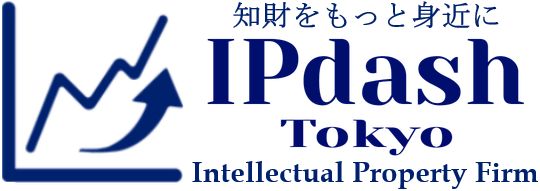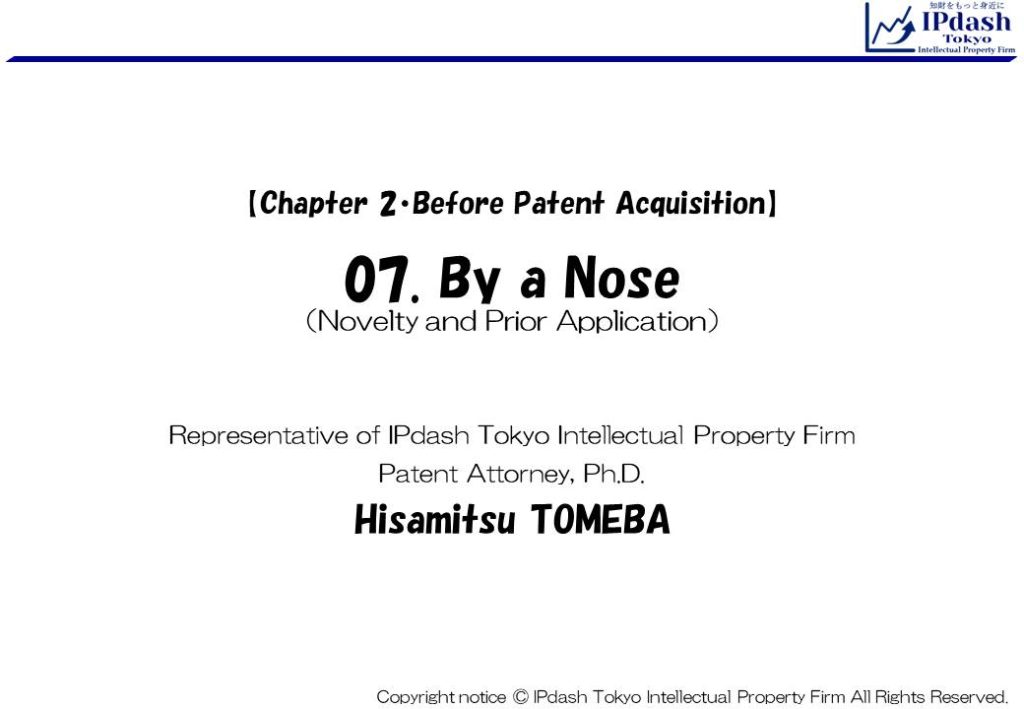
This is the 7th part of our seminar “Intellectual Property in Japan (Patent right)”.
“Novelty and Prior Application” will be explained in an easy-to-understand manner with slides.
☆ ☆ ☆
There are many conditions for refusal of patent.
In this time, “Novelty” and “Prior Application” will be explained.
These two rules are completely different.
However, the conclusion lead from these rules are same.
That is, “Sooner Patent Application is better”.
☆ ☆ ☆
Explanations will be proceeded with some questions.
First topics is “Novelty”.
(“Exception to lack of novelty of invention”(Article 30) or other exceptions will NOT be considered.)
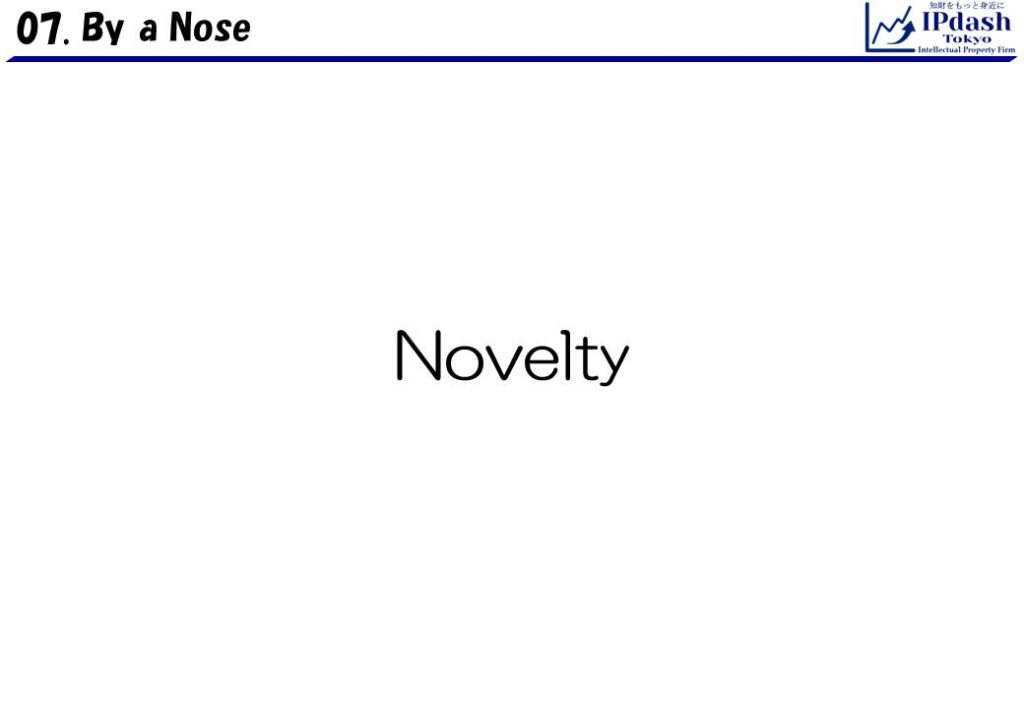
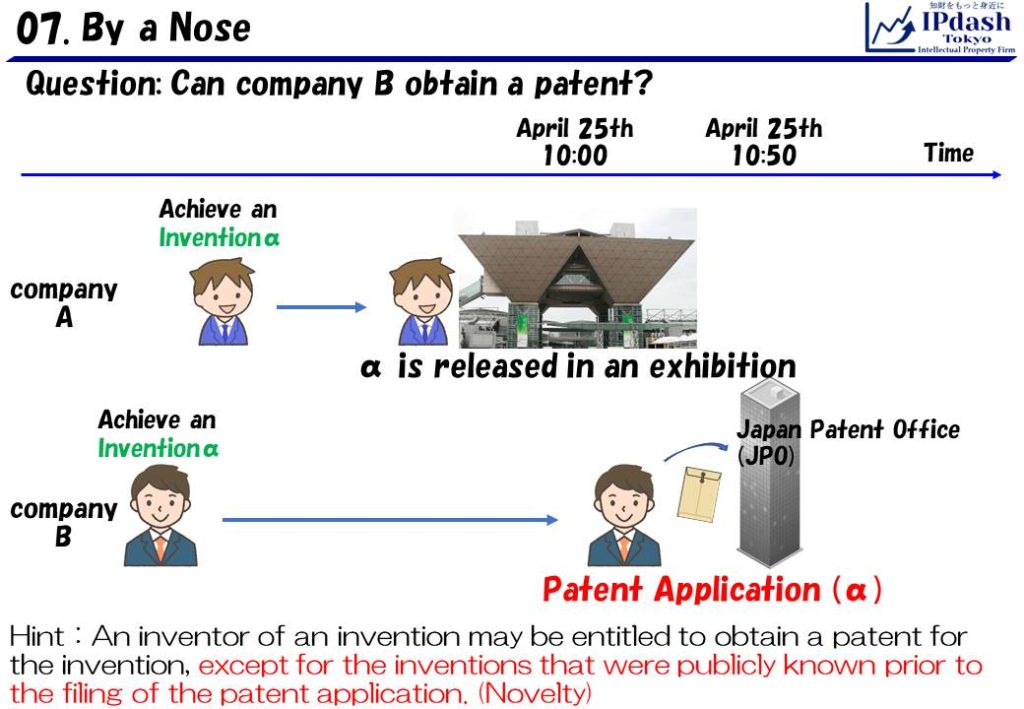
Company A and Company B are the rivals.
They have developed an same invention alpha unintentionally.
Company A released the product (invention alpha) at an exhibition at 10:00 on April 25th (publicly known).
Company B applied for a patent about invention alpha 10:50 on April 25th.
Here is a question.
Can company B obtain a patent of invention alpha?
☆ ☆ ☆
Hint is as above.
This is a part of article about “novelty” (Japan Patent Act Article 29.1.1)
The act says, “An inventor of an invention may be entitled to obtain a patent for the invention, except for the inventions that were publicly known prior to the filing of the patent application.”
That means that, applicant can not obtain a patent if the invention of application has no novelty.
Frankly speaking, inventions should be new.
☆ ☆ ☆
The point of this question is, the meanings of the phrase, “prior to the filing of the patent application”
Does the word “Prior” means one minute earlier? One hour earlier? or One day?
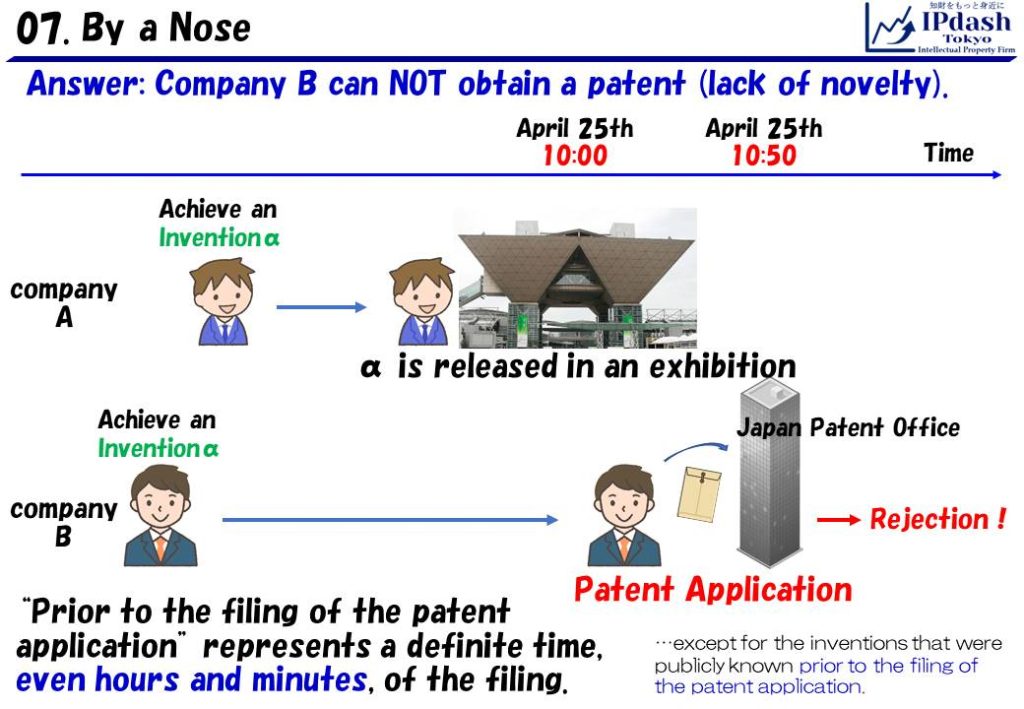
The answer is: Company B can NOT obtain a patent.
“Prior to the filing of the patent application” in the article about Novelty, represents a definite time, even hours and minutes, of the filing.
Therefore, if the same invention was published only 1 minute before application, applicant could not obtain a patent because of lack of novelty.
Judgement for novelty is very strict.
Examiner take “minute” into consideration if they can obtain some evidence relating to the time.
☆ ☆ ☆
Before next question, I would like to show an article about novelty.
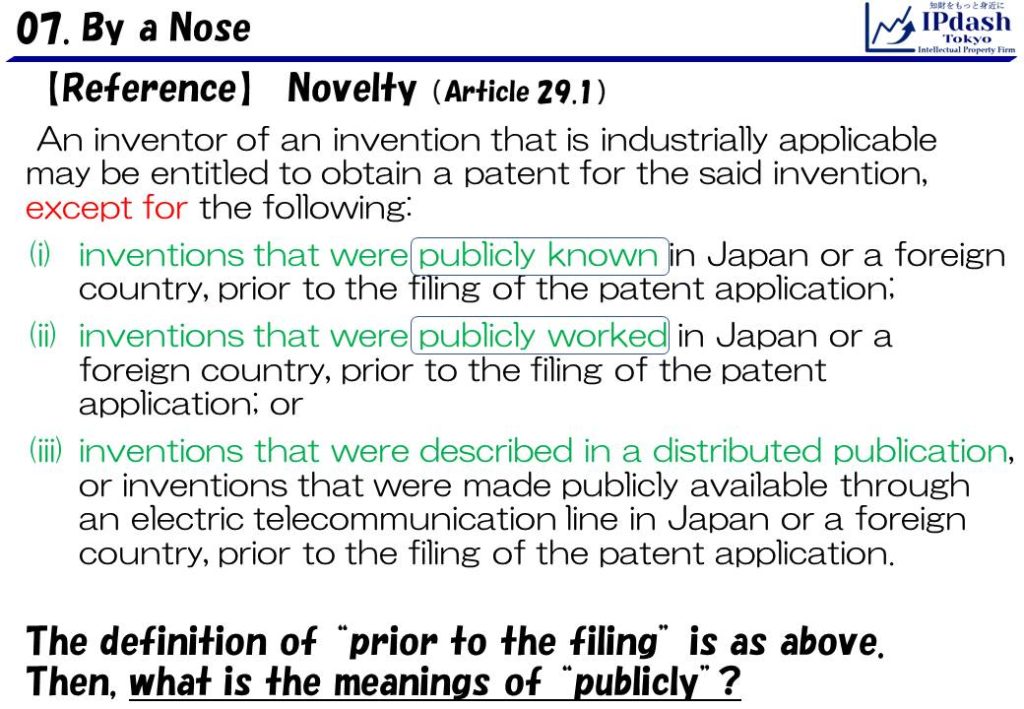
The key phrase of the question above is “Prior to the filing of the patent application”.
In the next question, key word is “publicly”.
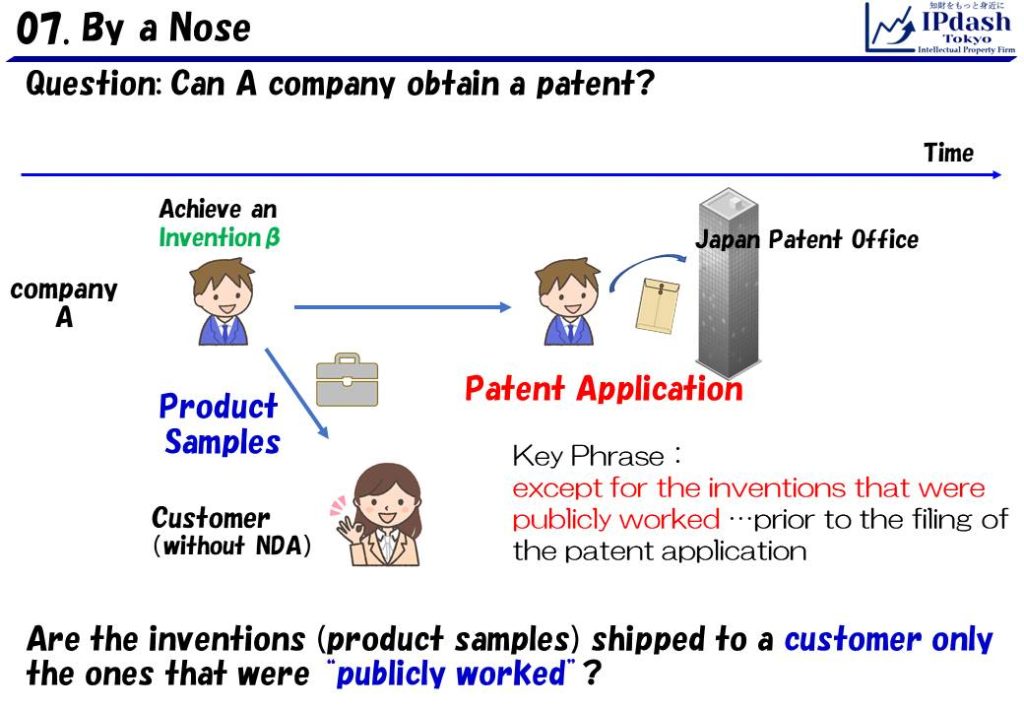
Company A developed an invention beta.
Then, company A shipped product samples (invention beta) to a engineer (customer).
Although company A does not sign a NDA (Non-Disclosure Agreement) with the engineer,
only the engineer knows the samples.
After the sample shipping, company A applied for a patent.
Here is a question.
Can company A obtain a patent about invention beta?
☆ ☆ ☆
The article of novelty says that an inventor can not obtain a patent for the inventions that were “publicly worked”.
Does this situation match to “publicly worked” ?
Especially, does it match to “publicly” ?
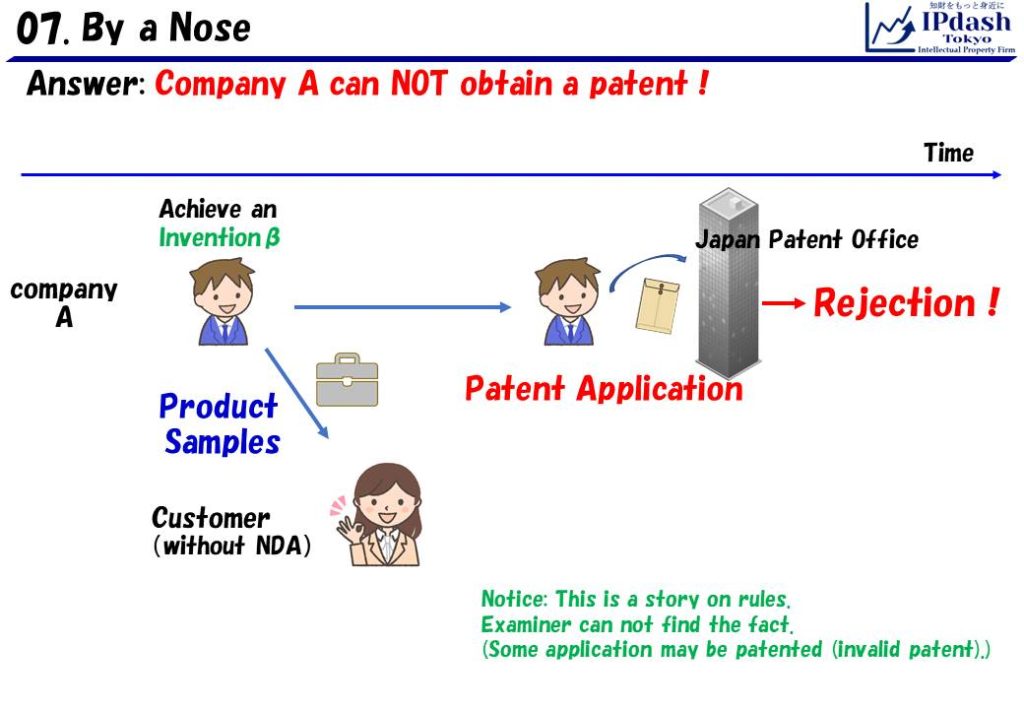
Answer: Company A can NOT obtain a patent.
Simply to say,
even if only one person knew the invention, the invention could be “publicly worked”.
That is, invention beta loose novelty in the case, and the applicant can not obtain a patent (in principle).
In the next slide, let’s see a Kommentar for industrial property act in Japan.
☆ ☆ ☆
By the way, this is a story on rules.
Examiner can not find the fact that company A disclosed the invention beta before application.
Such application may be patented. However, the patent hold an invalidity.
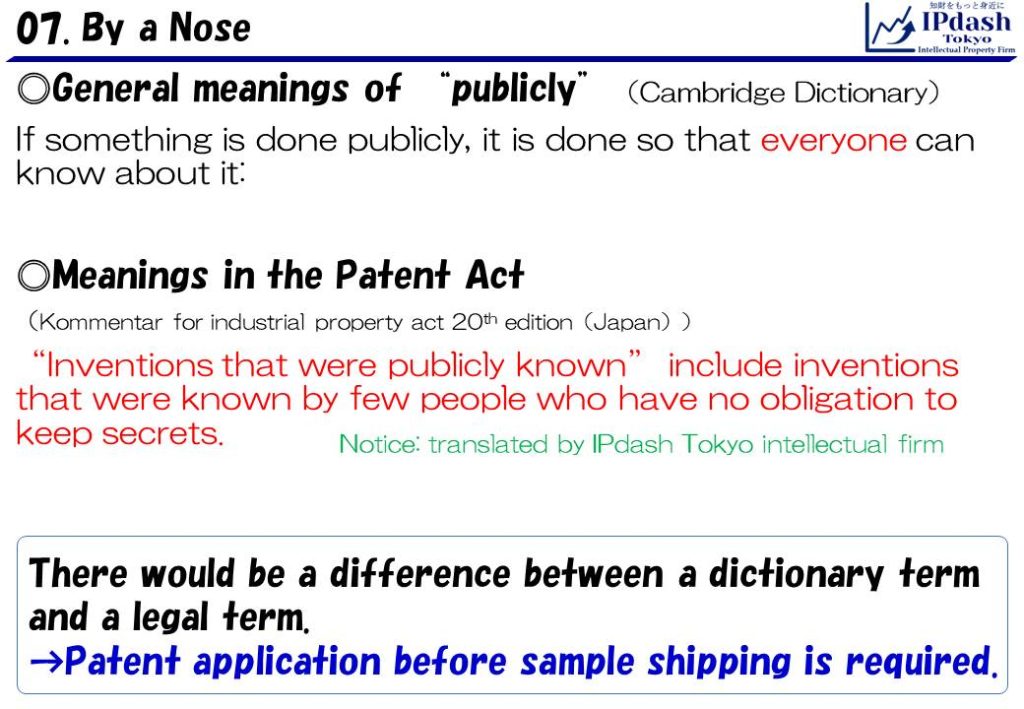
Dictionary says, “done publicly” means that everyone can know about it.
Therefore, in the example above, it seems that the invention beta does not lose novelty because the invention is not known by “everyone”.
However, the meanings of “publicly” on Japan Patent Act is different from the one on dictionary.
“Publicly known” can include the case that only a few people know the invention.
If applicant told an invention to their customer who have not obligation to keep secrets, the invention could not be patented because it lose novelty (in principle).
☆ ☆ ☆
That’s all for “Novelty” of inventions.
Next topic is “Prior Application”.
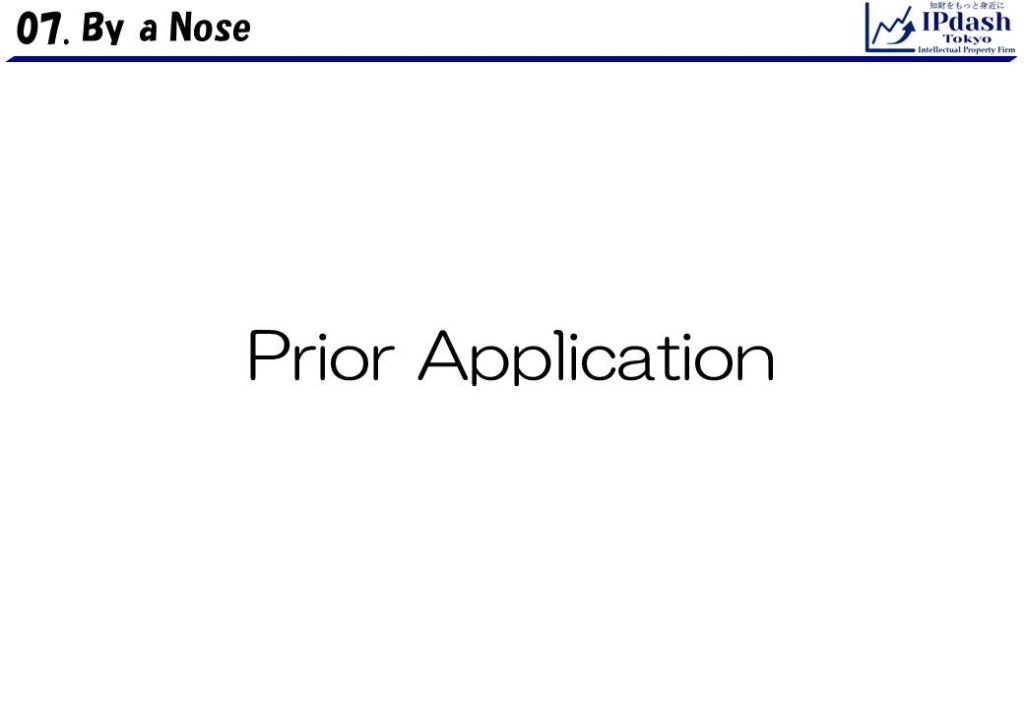
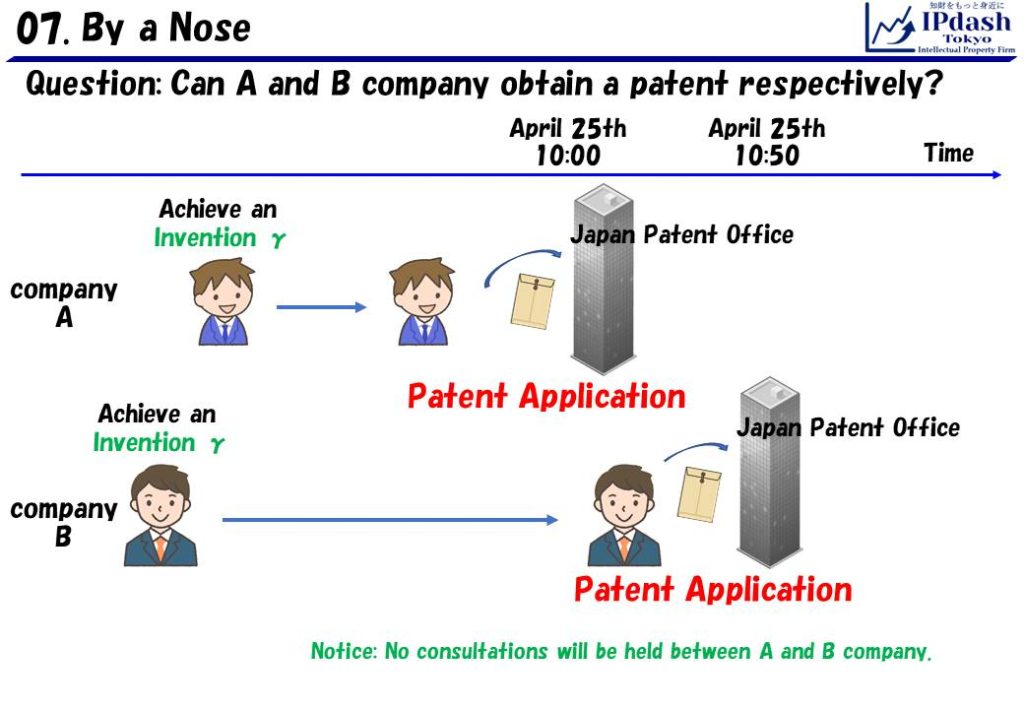
Company A and Company B are the rivals.
They have developed an same invention gamma unintentionally.
Company A applied for a patent about invention gamma at 10:00 on April 25th.
Company B applied for a patent about invention gamma at 10:50 on April 25th.
Here is a question.
Can company A obtain a patent of invention gamma?
Can company B obtain a patent of invention gamma?
☆ ☆ ☆
Timeline is same to the previous question.
In this question, company A applied for a patent, not released the product at an exhibition.
That is, this is the story about priority of application, not about novelty of the invention.
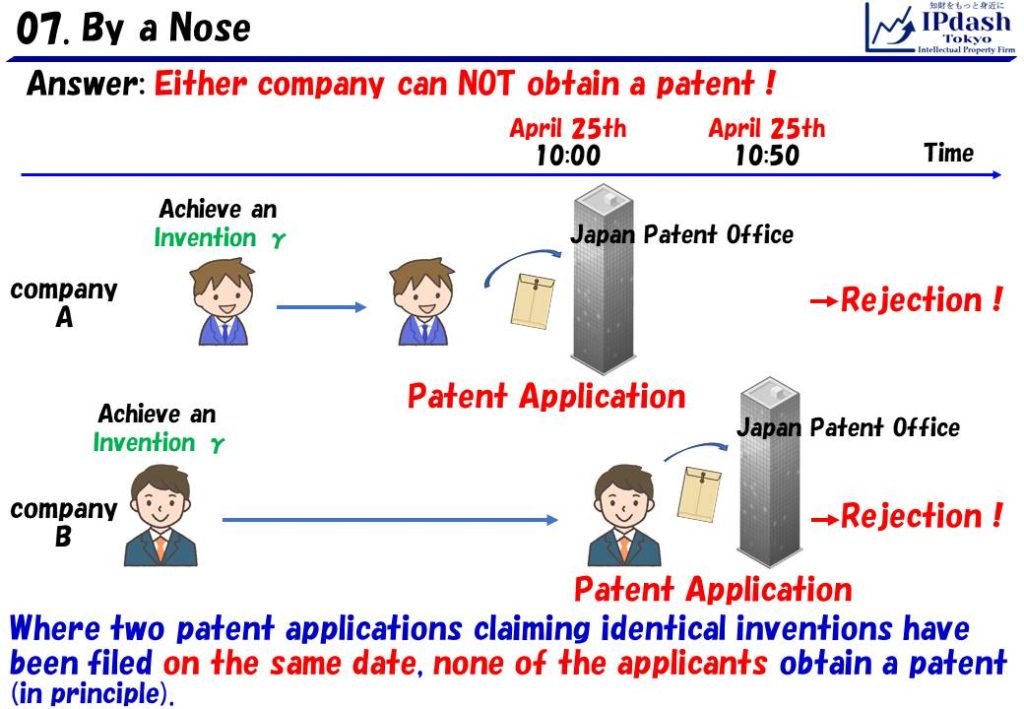
Where two patent applications claiming identical inventions have been filed on the same date, none of the applicants obtain a patent (Article 39.2).
(NOTICE: This is a case that two applicants do not reach agreement. In detail, please see a reference below.)
On the other hand, if an applicant apply for the patent only 1 day earlier than rivals, the applicant can obtain a patent (Article 39.1).
The decision which application is prior depends on “day”, not “minute or hour”.
☆ ☆ ☆
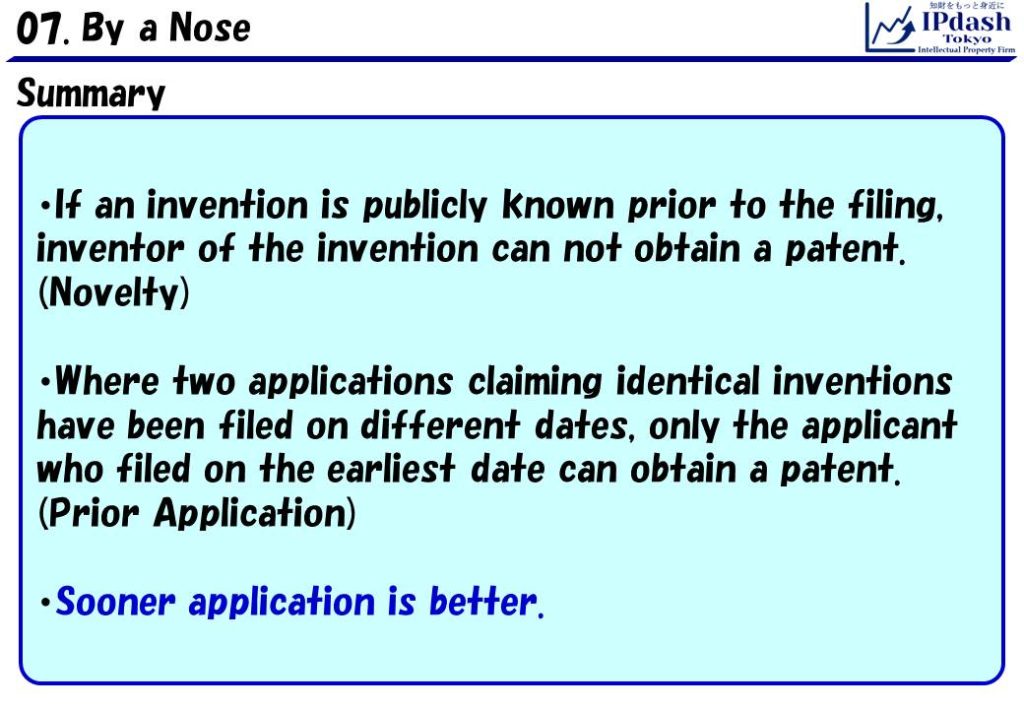
I’d like to wrap up with a summary of this part.
1. If an invention is publicly known prior to the filing, inventor of the invention can not obtain a patent. (Novelty)
2. Where two applications claiming identical inventions have been filed on different dates, only the applicant who filed on the earliest date can obtain a patent. (Prior Application)
3. Sooner application is better.
☆ ☆ ☆
In this part, Novelty (Article 29) and Prior Application (Article 39) are explained.
There are completely different rules.
However, I believe that it is easy to understand by explaining these rules in a row.
Anyway, if you felt that “Patent application should be done earlier”, I would be very happy.
☆ ☆ ☆
Reference: Japan Patent Act
Article 39
(1) Where two or more patent applications claiming identical inventions have been filed on different dates, only the applicant who filed the patent application on the earliest date shall be entitled to obtain a patent for the invention claimed.
(2) Where two or more patent applications claiming identical inventions have been filed on the same date, only one applicant, who was selected by consultations between the applicants who filed the said applications, shall be entitled to obtain a patent for the invention claimed.
Where no agreement is reached by consultations or consultations are unable to be held, none of the applicants shall be entitled to obtain a patent for the invention claimed.
(Items after (3) is abbreviated.)
☆ ☆ ☆
That’s all for Part 7 (Novelty and Prior Application).
IPdash Tokyo Intellectual Property Firm (Japan)
(To Part 06) (To Part 08)
(To List)
